UK police detain Jewish scholar Haim Bresheeth following pro-Palestine address
A Jewish historian and retired professor has been arrested by London's Metropolitan Police after delivering remarks at a weekly anti-genocide protest, where he said that Israel "cannot win against Hamas."
Haim Bresheeth, an academic and filmmaker who established the Jewish Network for Palestine, was taken into custody during a protest outside the home of Israeli ambassador Tzipi Hotovely in north London on Friday, only to be released the following day after his arrest.
“They cannot win against Hamas, they cannot win against Hezbollah, they cannot win against the Houthis. They cannot win against the united resistance to the genocide they have started,” Bresheeth said in his speech.
A police spokesperson confirmed in a media statement that he has been charged with supporting a "proscribed organization. "
The spokesperson also noted that he has been released pending further investigation.
The British government has classified the Palestinian and Lebanese resistance movements as proscribed.
A video capturing the arrest of the anti-Zionist and anti-racist activist reveals a police officer stating that he is being detained under the Terrorism Act 2000 for allegedly delivering a "hate speech."
However, the content of Bresheeth's speech criticized Israel's actions, highlighting issues of colonialism, racism, and violence, which included the mass murder of numerous civilians, among them tens of thousands of children.
“Israel has not achieved any of its declared aims, either in Gaza, in Lebanon, in Iran or anywhere else,” Bresheeth said, adding that “they cannot fight the resistance, they have lost every single time.”
Bresheeth, a retired Jewish professor of the UK’s School of Oriental and African Studies (SOAS), is an author and filmmaker who, for the last few decades, has been a vocal critic of Israel's genocide against Palestinians.
Reports indicate that British authorities are increasingly utilizing anti-terrorism and anti-mafia legislation to detain and prosecute pro-Palestine activists and journalists.
Recent legislative changes, including the Police, Crime, Sentencing and Courts Bill 2022(PCSC) and the Public Order Act 2023, have significantly expanded police powers and allowed the Crown Prosecution Service (CPS) to curtail protesters' rights.
The laws have made it easier for law enforcement to pursue harsher charges against demonstrators, while the Court of Appeal has removed essential defenses previously available to them, leading to increasingly severe penalties for those facing trial.
The situation has escalated to the point where counter-terrorism officers have executed search warrants against journalists, such as Asa Winstanley of Electronic Intifada, under the Terrorism Act, further illustrating the extent of the crackdown on dissent.
Pro-Palestine solidarity groups have raised alarms, viewing the crackdown as an attempt to silence dissenting voices and undermine their right to free expression.
Venezuelan military stands with acting president after US kidnapping of Maduro
VIDEO | Press TV's news headlines
VIDEO | Protesters in Toronto slam US kidnapping of Venezuelan president
Israeli troops detain, intimidate Palestinian toddler in West Bank
Iran says its investments in Venezuela face no major risk
Make ‘right decision’ or face more US pressure, Rubio tells Venezuela’s Rodriguez
VIDEO | General Soleimani honored in Kashmir, Kargil
US, Israel waging ‘soft warfare’ to destabilize Iran after June defeat: Top general


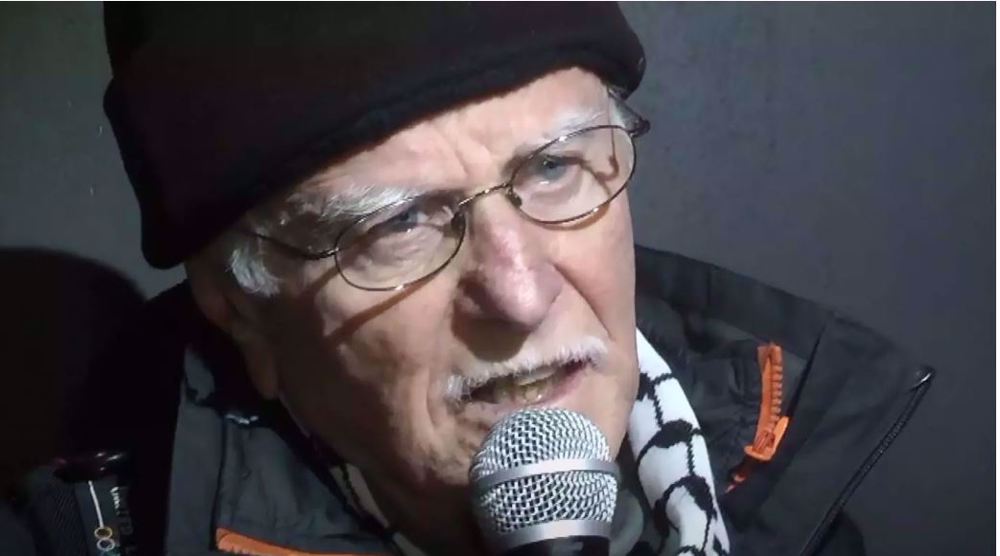
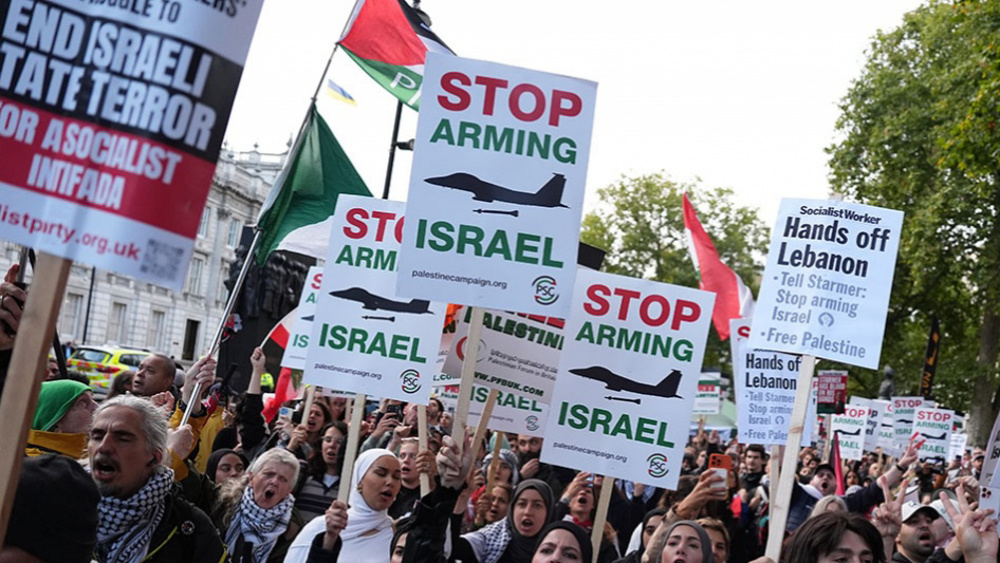
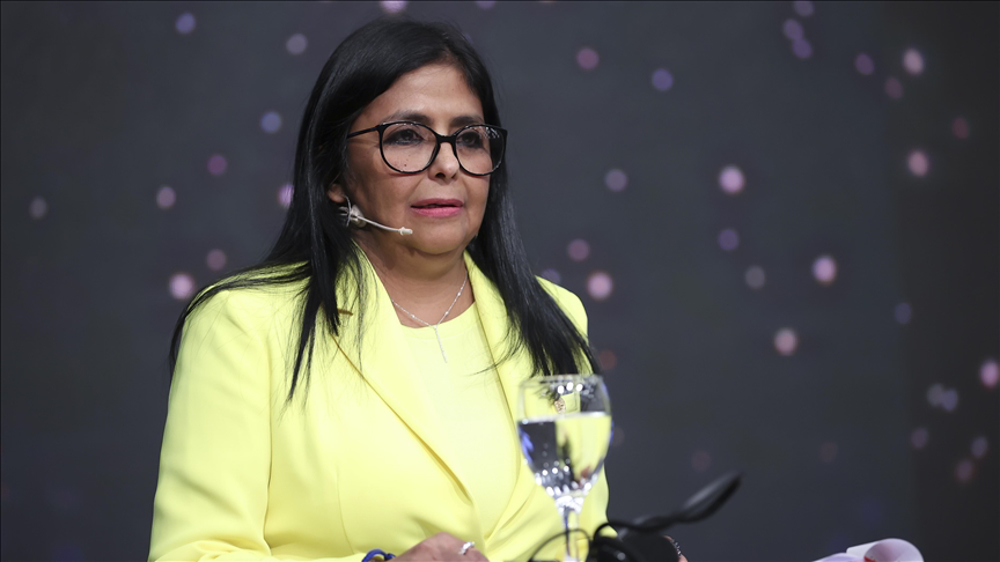
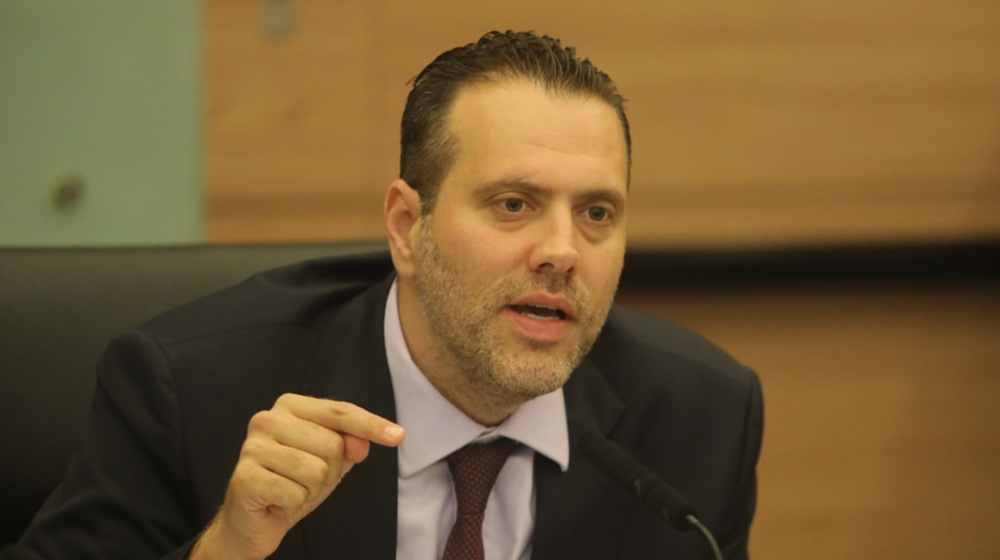
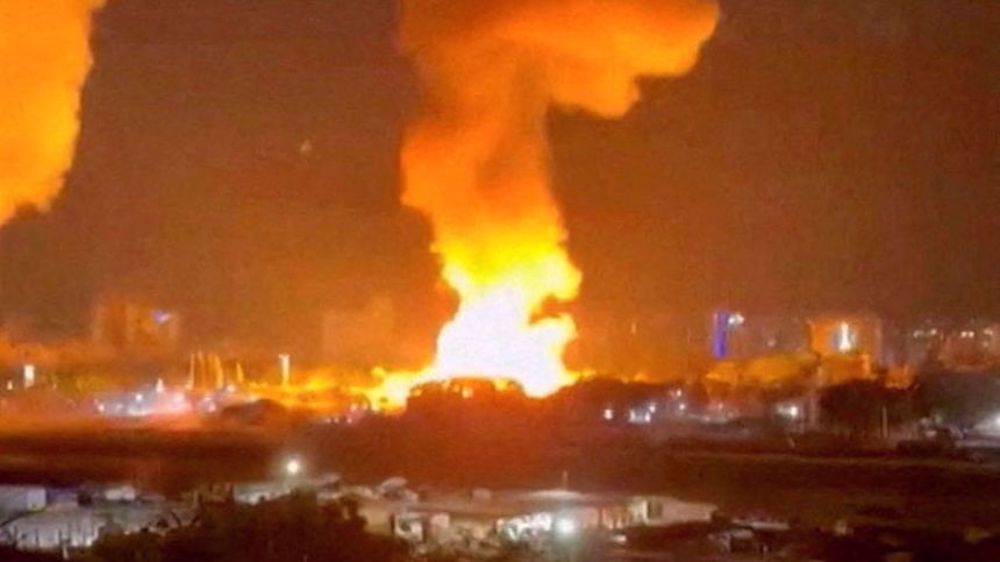



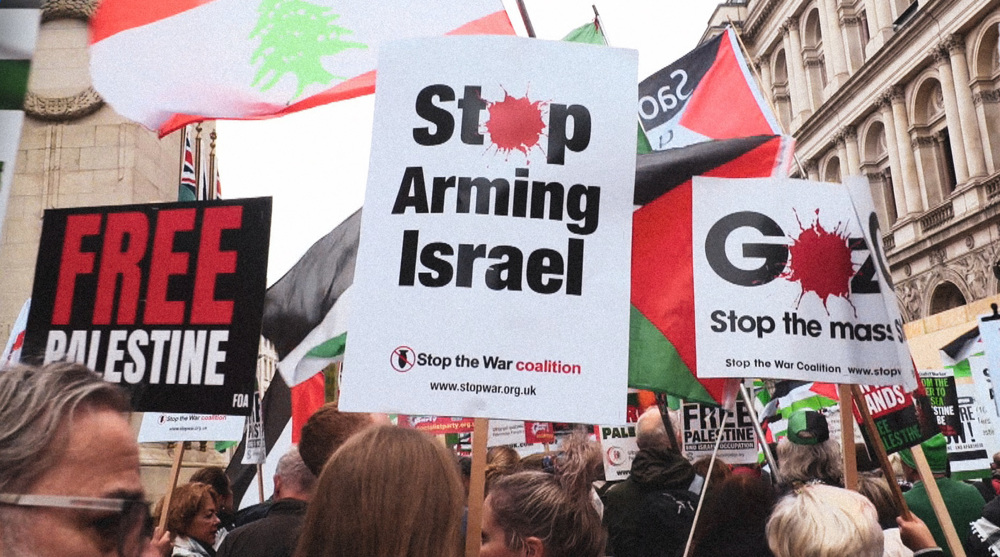

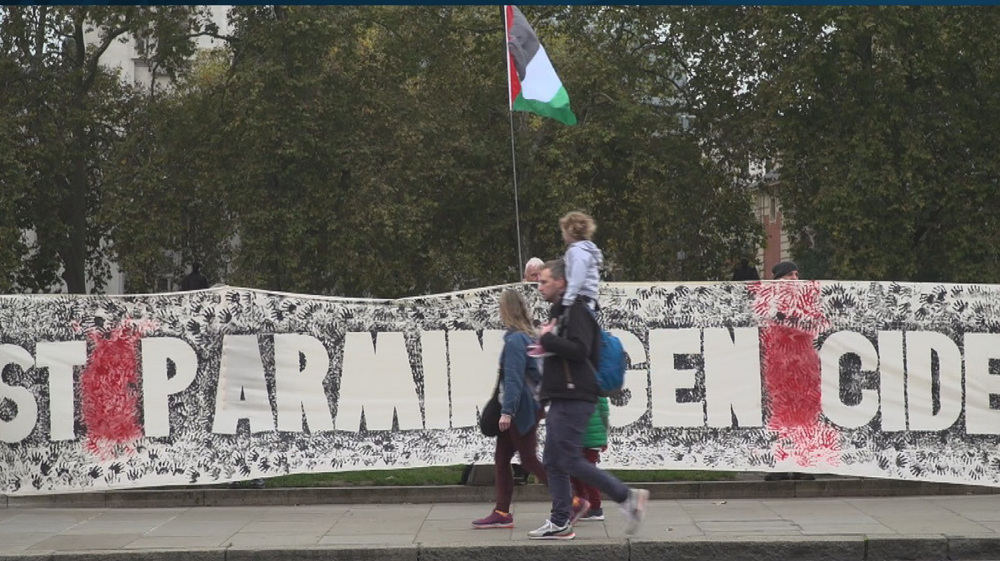
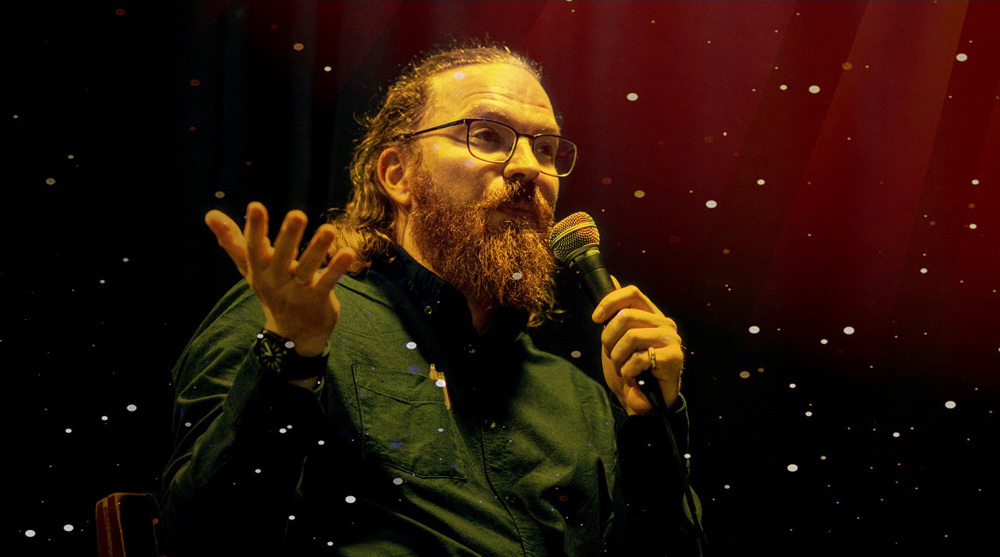
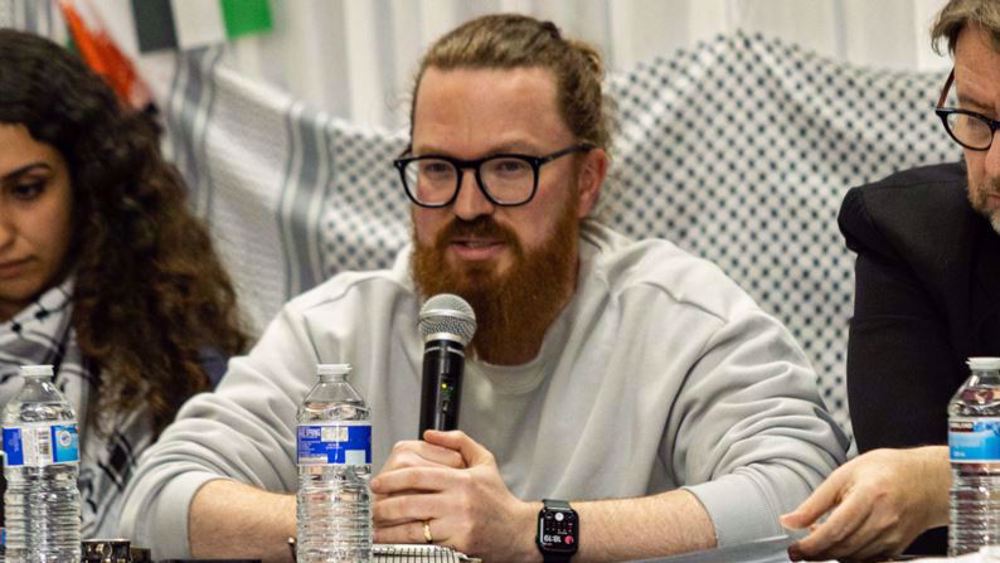

 This makes it easy to access the Press TV website
This makes it easy to access the Press TV website